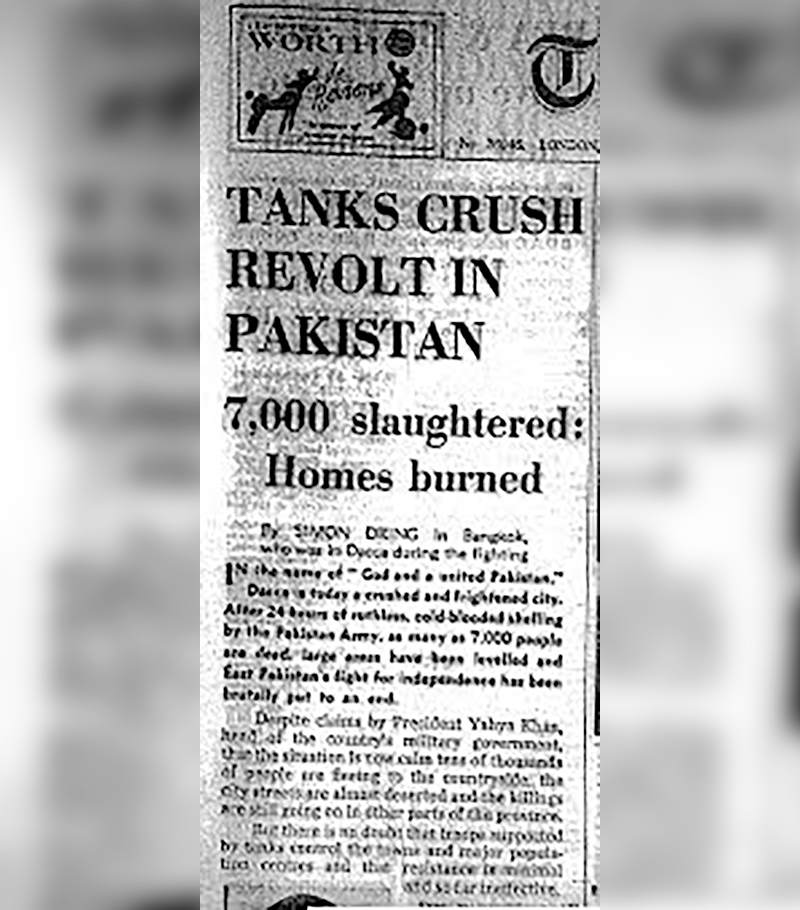
Journalist Simon Dring No More
Desk Report
Published: 20 Jul 2021, 04:39 pm

Former British journalist Simon Dring || Photo: Collected
Former British journalist Simon Dring, who played a big role in Bangladesh’s war of independence in 1971, passed away in London on Tuesday.
Simon’s friend, journalist Tushar Abdullah, confirmed this news to media.
Abdullah said Simon died in London this morning during a routine surgery for a bowel obstruction.
He left behind his partner Fiona and two young children, Ava and India.
He was one of the foreign journalists who risked their lives and reported on the liberation war of Bangladesh in 1971 from the field.
Simon began his career as a writer/journalist at the age of 18 when he travelled to the Far East and joined the Bangkok World Newspaper as a feature writer. He later went on to report on the beginning of the Vietnam war, reporting for Reuters and other news organisations.
In his subsequent career, Dring reported from Bangladesh, Biafra, Eritrea and many other conflict areas while working for The Telegraph and the BBC.
Just before the Pakistan Army launched their infamous ‘Operation Searchlight’ in Dhaka on March 25, 1971, they imprisoned around 200 foreign journalists at the then Hotel Intercontinental to prevent them from witnessing the army’s atrocities all over the city.
To make sure no international journalist could gather any information or proof on the genocide they were committing on the innocent people in Dhaka, the army took these journalists from their confinement in the hotel to Dhaka Airport to send them to Karachi.
However, the then 27-year-old British reporter Simon Dring stayed behind to expose the monstrosity of the Pakistan Army. He risked his life by hiding for over 32 hours at the lobby, kitchen and rooftop of the Hotel Intercontinental.
After the curfew was lifted on March 27 he left the hotel. He roamed around Dhaka on a bakers’ van, hiding from army personnel, collecting information and evidence against the Pakistan military force of arson and mass murder at different areas of the city, including Rajarbagh Police Lines and Dhaka University.
Later, Simon somehow managed to board a flight to West Pakistan and from there, succeeded to travel to Bangkok, preserving the necessary notes he gathered from his perilous and life-threatening assignment.

(Simon Dring's report ‘Tanks crush revolt in Pakistan’ in The Daily Telegraph on March 30, 1971. || Collected Photo)
From those notes, Simon Dring wrote his report ‘Tanks crush revolt in Pakistan’, which is famously known as the first written account of the horrifying genocide and military atrocity in Bangladesh. The report was published on the front page of The Daily Telegraph on March 30, 1971.
Simon was on the plane carrying Khomeini back from Paris to Iran in 1979. He was injured several times and imprisoned in Uganda by Amin where he was threatened with execution.
He partnered with Bangladeshi counterparts in 1997 to develop, license, and build the first private, commercial terrestrial/satellite TV channel in Bangladesh — Ekushey Television (ETV) — as Joint Managing Director.
Simon helped ETV bring news and education forward as television content and established the first dedicated television news team in Bangladesh with over 50 reporters, producers, and editors.
The veteran journalist won numerous awards in Britain and internationally.